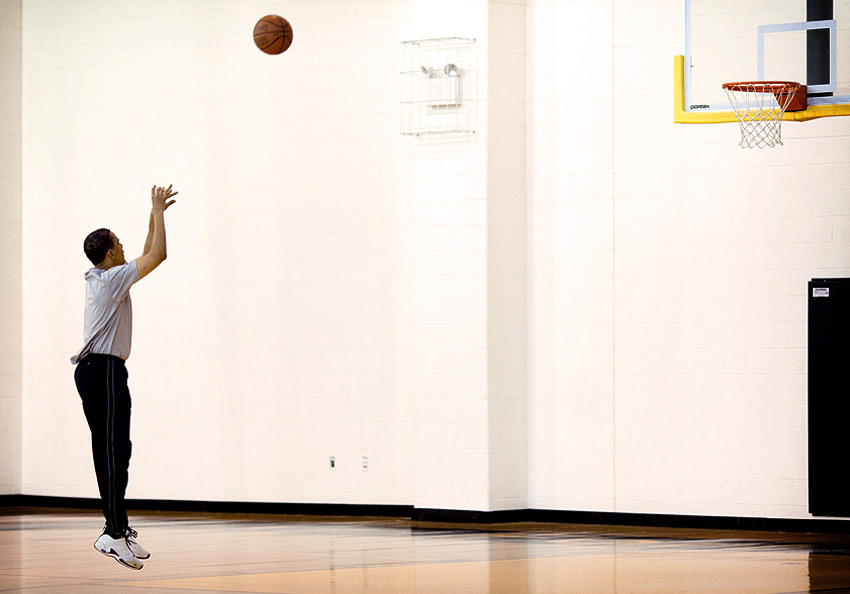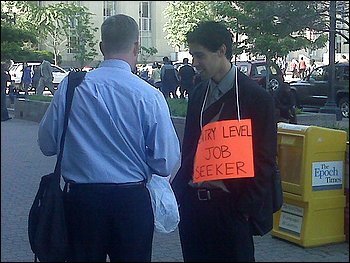I myself have ranted and railed in the past about my dislike of “networking events”, my discomfort with and general poorness at the entire of concept networking, and how if you do go out networking, try not to look like a dirtball (I even once ventured into the parallels between networking and food). So I thoroughly enjoyed this post on the prototypical DC “networking blowhard” from why.i.hate.dc:
If you’re like me, you hate the entire idea of these sorts of things. Does anyone really believe that some dude you meet at a happy hour and exchange your “program assistant” business cards with will really be able to get you a job somewhere? There are a few problems with this logic, the first being that anyone who has the power to truly influence hiring decisions won’t be going to a networking event at the Front Page. Second, if you do have any sort of influence at your organization, you aren’t going to go out on a limb for someone you barely know. Third, the economy is in the toilet and there’s 500 people applying for every job opening in this town.
As such, these events are often attended by the person I’ll describe as the professional networking blowhard. This is the guy (or girl) who absolutely has to tell you about how amazing his job is, and how much he has accomplished in the 23 years he has been alive. Did you know that he went backpacking in Asia and is so tired of seeing temples that he will be happy if he never sees one ever again? Also, when he studied at Oxford, his flatmate from Mehhh-He-Ko (Mexico) taught him about the perils of the Zapatistas? What does he do now? Well, he works on an important program at [prominent non-profit]. You’ve never even heard of where he works, but don’t worry, he’ll tell you all about it. If you work for another non-profit, or a government agency, he’ll have a story about how just the other day he ran into the executive director (or cabinet secretary) of where you work. “Yeah, I totally ran into Secretary Chu downtown and we talked about renewable energy. He’s a nice guy.”
Sherry and I have often emphasized the point why.i.hate.dc is getting at: networking events that seem more like adult versions of high school mixers are far less worthwhile than those events or occasions at which you are actually engaged with people and a subject you really care about:
You’ll find the real people to “network” with at events that have some sort of meaning, or that revolve around something you are actually interested in. Reach out to people who write things you enjoy reading. Attend a community meeting about a topic that you feel is important. Volunteer for something that’s a bit obscure and isn’t filled only with people trying to deal with liberal guilt.





